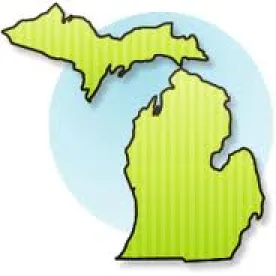On June 27, 2019, the Michigan PFAS Action Response Team (MPART) Science Advisory Workgroup announced its recommendations on health-based values for seven PFAS compounds in drinking water. The announcement, made at a joint meeting of MPART and the state’s Environmental Rules Review Committee, is part of the follow-up to Governor Whitmer’s directive that the state propose new drinking water standards for per- and polyfluoroalkyl substances (PFAS) by October 1, 2019.
MPART announced the members of the three-person workgroup only 2 1/2 months ago, on April 11. It included Dr. David Savitz of Brown University, Kevin Cox of NSF International, and Dr. Jamie DeWitt of East Carolina University, with support from MPART staff.
The workgroup evaluated the 18 PFAS compounds that are currently included in the Environmental Protection Agency (EPA)’s drinking water analysis method (USEPA Method 537.1) and ultimately identified health based values for seven of them. The drinking water health-based value for each is:
-
PFNA, 6 ng/L (ppt)
-
PFOA, 8 ng/L (ppt)
-
PFHxA, 400,000 ng/L (ppt)
-
PFOS, 16 ng/L (ppt)
-
PFHxS, 51 ng/L (ppt)
-
PFBS, 420 ng/L (ppt)
-
GenX, 370 ng/L (ppt)
For all compounds except for PFOS, the health-based values are lower than the screening levels developed by Michigan Department of Health and Human Services earlier this year.
The MPART Science Advisory Workgroup also recommended the use of the health-based value for PFNA (6 ng/L or parts per trillion (ppt)) as a screening level for all other long-chain PFAS compounds listed in the EPA drinking water analysis method, stating: “The screening level should not be used to evaluate risk but as a tool for EGLE/public water supplies to use for decision-making.”
The workgroup determined that there was not scientific consensus for grouping multiple PFAS like the long-chain compounds together for health-based values, but instead proposed this screening level as a starting point for evaluating other long-chain PFAS compounds for which there is not yet sufficient data to derive health-based values.
MPART voted to accept the workgroup’s report and MPART member agencies will review the recommendations and consider referring them to the Michigan Department of Environment, Great Lakes, and Energy (EGLE) as part of EGLE’s rulemaking process to establish state drinking water standards for PFAS. EPA has not set national drinking water standards, but it has included as part of its PFAS Action Plan that it will make a determination by the end of the year on whether to pursue drinking water standards.
Congress is also considering legislation requiring EPA to regulate certain PFAS compounds under the Safe Drinking Water Act. Regardless, federal drinking water standards, if any, would take several years to promulgate. Because of the timeline of any enforceable federal standards, Michigan is charging forward with its own rulemaking for drinking water standards.
In the rulemaking process, the health-based values developed by the Science Advisory Workgroup will serve as a starting point, but drinking water regulations require that EGLE must evaluate costs, best available treatment technologies and other factors before setting enforceable drinking water maximum contaminant levels (MCLs).
EGLE will conduct stakeholder meetings over the next couple of months to collect input while it assesses the efficacy of such standards, availability and affordability of treatment technologies, as well as many other key issues, such as availability of reliable analytical methods and laboratory capacity. The governor’s order directs EGLE to propose MCLs by October 2019 and take final action on the standards by April 2020.
Interested parties may participate in these stakeholder meetings with EGLE and engage in ongoing dialogue so the agency has the information it needs to ensure that any final action is appropriate and fully justified by the facts and science associated with these complex issues. There are anti-backsliding provisions within the Safe Drinking Water Act, and many stakeholders want to be certain that the standards being set here are fully achievable, and that Michigan does not get too far ahead of other states and the federal government with permanent standards.






 />i
/>i

